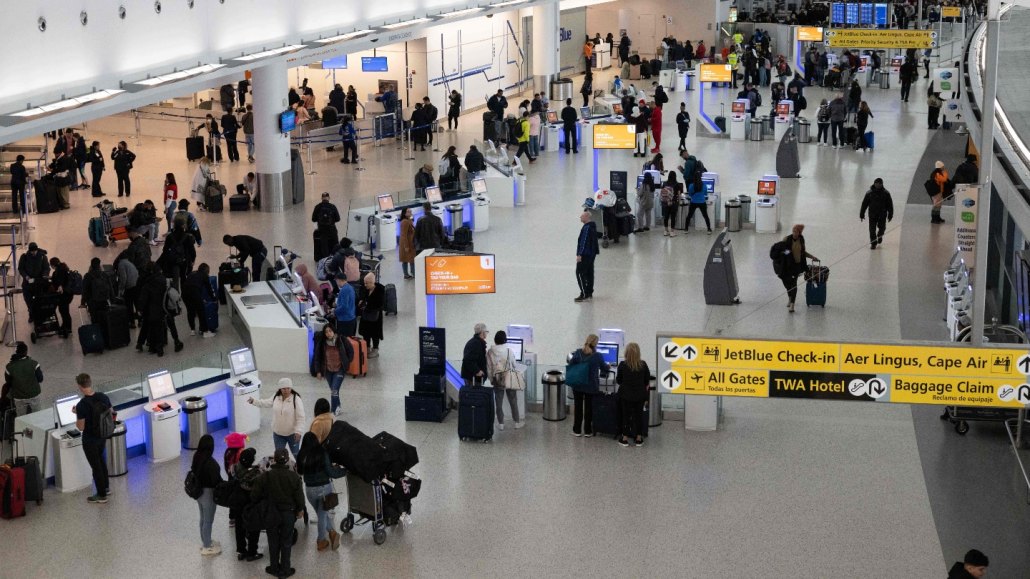The CDC is expanding its disease surveillance of international travelers
An ongoing coronavirus monitoring program will now test for more than 30 pathogens

Travelers arrive at John F. Kennedy International Airport in New York City, one of four major U.S. airports where the CDC is expanding a program to track pathogens entering the country.
Yuki Iwamura/AFP/Getty Images







